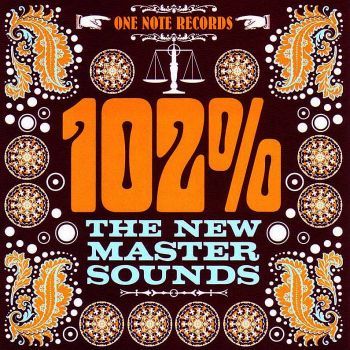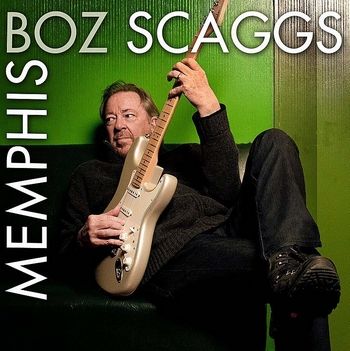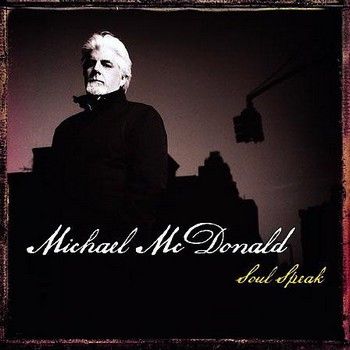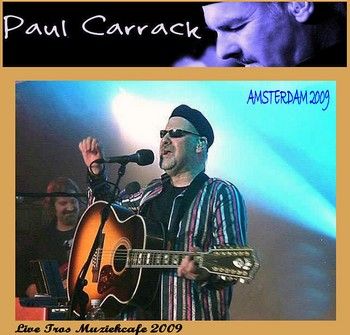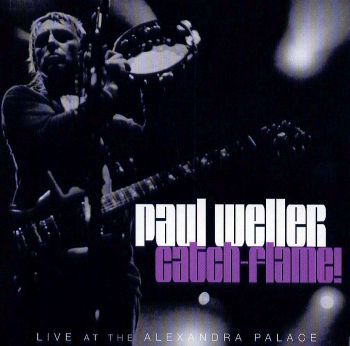
Another year, another live album. Paul Weller has turned out to be as predictable as the Rolling Stones in how he follows a new set of material with a live album, following every album since Wild Wood with a live record. Because of this it's hard not to superficially see 2006's Catch-Flame! Live at the Alexandra Palace as just another live album, but take the time to listen to Catch-Flame! and it soon reveals itself as a surprise every bit as bracing as Weller's 2005 studio album As Is Now: a record that doesn't sound all that different from its predecessor, at least on the surface, but underneath that surface, it's apparent that Weller's fire is again burning intensely. There's a vigor and vitality to this performance that eclipses all his other live solo albums; it's as kinetic as early Jam, but without abandoning the Traffic-inspired, jam-heavy aesthetic that marked his solo work. As such, it's satisfying both as an exciting, energetic live album and as one to savor, to really enjoy the interplay between the musicians, and it makes Catch-Flame! something far more than another Weller live album; indeed, it makes it closer to being the live Weller album instead of just another live record. © Stephen Thomas Erlewine © 2014 AllMusic, a division of All Media Network, LLC. | All Rights Reserved http://www.allmusic.com/album/catch-flame%21-mw0000443355
Catch-Flame! was recorded at London’s Alexandra Palace on 5th December 2005, the last date of Paul Weller’s 2005 UK tour and is his third live solo album. The album includes songs from Paul’s days with The Jam and The Style Council as well as many popular tracks from his solo albums. It has never been easy to categorize Paul Weller’s music. In his earlier days he was influenced by artists like Otis Redding, Dr Feelgood, The Who and the Sex Pistols. In more recent times, Paul fundamentally plays English modern soul rock, but he has always introduced folk, blues, soul, bluebeat, rock, ska, and modern jazz into his music. A brilliant musician and songwriter, this album captures the moment, and confirms the greatness of this unique British musician. Check out a BBC podcast of Paul’s favourite music @ http://www.bbc.co.uk/radio4/features/desert-island-discs/castaway/34730ec9#b008gh41 Check out http://www.paulweller.com/ and listen to his “Heliocentric” and “22 Dreams” albums. He has never made a duff album. The Jam’s “All Mod Cons” is another classic album [All tracks @ 320 Kbps: File size = 244 Mb (2 Discs)]
TRACKS
CD 1
1 The Weaver
2 Out of the Sinking
3 Blink and You'll Miss It
4 Paper Smile
5 Peacock Suit
6 From the Floorboards Up
7 The Changingman
8 Savages
9 Going Places
10 Up in Suzes' Room
11 Porcelain Gods/I Walk On Gilded Splinters
CD 2
1 In the Crowd
2 Come On/Let's Go
3 Foot of the Mountain
4 You Do Something to Me
5 Wishing on a Star
6 Wild Wood
7 The Pebble & The Boy
8 That's Entertainment
9 Broken Stones
10 Long Hot Summer
11 Shout to the Top
12 Town Called Malice
All tracks composed by Paul Weller except "The Changingman" by Paul Weller & Brendan Lynch, "Porcelain Gods/I Walk On Gilded Splinters" by Paul Weller & John Creaux and "Wishing on a Star" by Billie Rae Calvin
MUSICIANS
Paul Weller - Guitar, Vocals
Steve Cradock - Guitar
Damon Minchella - Bass
Seamus Beaghan - Keyboards
Steve White - Drums, Percussion
BIO
As the leader of the Jam, Paul Weller fronted the most popular British band of the punk era, influencing legions of English rockers ranging from his mod revival contemporaries to the Smiths in the '80s and Oasis in the '90s. During the final days of the Jam, he developed a fascination with Motown and soul, which led him to form the sophisti-pop group the Style Council in 1983. As the Style Council's career progressed, Weller's interest in soul developed into an infatuation with jazz-pop and house music, which eventually led to gradual erosion of his audience -- by 1990, he couldn't get a record contract in the U.K., where he had previously been worshiped as a demigod. As a solo artist, Weller returned to soul music as an inspiration, cutting it with the progressive, hippie tendencies of Traffic. Weller's solo records were more organic and rootsier than the Style Council's, which helped him regain his popularity within Britain. By the mid-'90s, he had released three successful albums that were both critically acclaimed and massively popular in England, where contemporary bands like Ocean Colour Scene were citing him as an influence. Just as importantly, many observers, while occasionally criticizing the trad rock nature of his music, acknowledged that Weller was one of the few rock veterans who had managed to stay vital within the second decade of his career. Weller's climb back to the top of the charts was not easy. After Polydor rejected the Style Council's fifth, house-influenced album in 1989, Weller broke up the group and lost both his record contract and his publishing deal. Over the next two years, he was in seclusion as he revamped his music. In 1991, he formed the Paul Weller Movement and released "Into Tomorrow" on his own independent label, Freedom High Records. A soulful, gritty neo-psychedelic song that represented a clear break from the Style Council, "Into Tomorrow" reached the U.K. Top 40 that spring, and he supported the single with an international tour, where he worked out the material that comprised his eponymous 1992 solo debut. Recorded with producer Brendan Lynch, Paul Weller was a joyous, soulful return to form that was recorded with several members of the Young Disciples, former Blow Monkey Dr. Robert, and Weller's then-wife, Dee C. Lee. The album debuted at number eight on the U.K. charts, and was received with positive reviews. Wild Wood, Weller's second solo album, confirmed that the success of his solo debut was no fluke. Recorded with Ocean Colour Scene guitarist Steve Cradock, Wild Wood was a more eclectic and ambitious effort than its predecessor, and it was greeted with enthusiastic reviews, entering the charts at number two upon its fall 1993 release. The album would win the Ivor Novello Award for Outstanding Contemporary Song Collection the following year. Weller supported the album with an extensive tour that featured Cradock as the group's leader; the guitarist's exposure on Wild Wood helped him successfully relaunch Ocean Colour Scene in 1995. At the end of the tour, Weller released the live album Live Wood late in 1994. Preceded by "The Changingman," which became his 17th Top Ten hit, 1995's Stanley Road was his most successful album since the Jam, entering the charts at number one and eventually selling nearly a million copies in the U.K. By this point, Weller decided to stop attempting to break into the United States market and canceled his North American tour. Of course, he was doing so well in the England that he didn't need to set his sights outside of the U.K. Stanley Road may have been greeted with mixed reviews, but Weller had been re-elevated to his status as an idol, with the press claiming that he was the father of the thriving Brit-pop movement, and artists like Noel Gallagher of Oasis singing his praises. In fact, while neither artist released a new album in 1996, Weller's and Gallagher's influence was felt throughout the British music scene, as '60s roots-oriented bands like Ocean Colour Scene, Cast, and Kula Shaker became the most popular groups in the U.K. Weller returned in the summer of 1997 with Heavy Soul. Modern Classics: Greatest Hits followed a year later. Heliocentric -- which at the time of its release he claimed was his final studio effort -- appeared in the spring of 2000. The live record Days of Speed followed in 2001, and he released his sixth studio album, Illumination, in 2002. A collection of covers called Studio 150 appeared in 2004, followed by an all-new studio release, As Is Now, in October of 2005 on Yep Roc. Released in 2006, Catch-Flame! Live at the Alexandra Palace preceded Yep Roc’s mammoth Hit Parade box set. It was followed in 2008 by 22 Dreams, a two-disc studio epic that managed to touch on all of Weller’s myriad influences. His tenth solo album, Wake Up The Nation, was released in 2010 and it proved another success, earning a nomination for the Mercury Music Prize. Weller's next album, Sonik Kicks, arrived in the spring of 2012. © Stephen Thomas Erlewine © 2014 AllMusic, a division of All Media Network, LLC. | All Rights Reserved http://www.allmusic.com/artist/paul-weller-mn0000029791/biography


